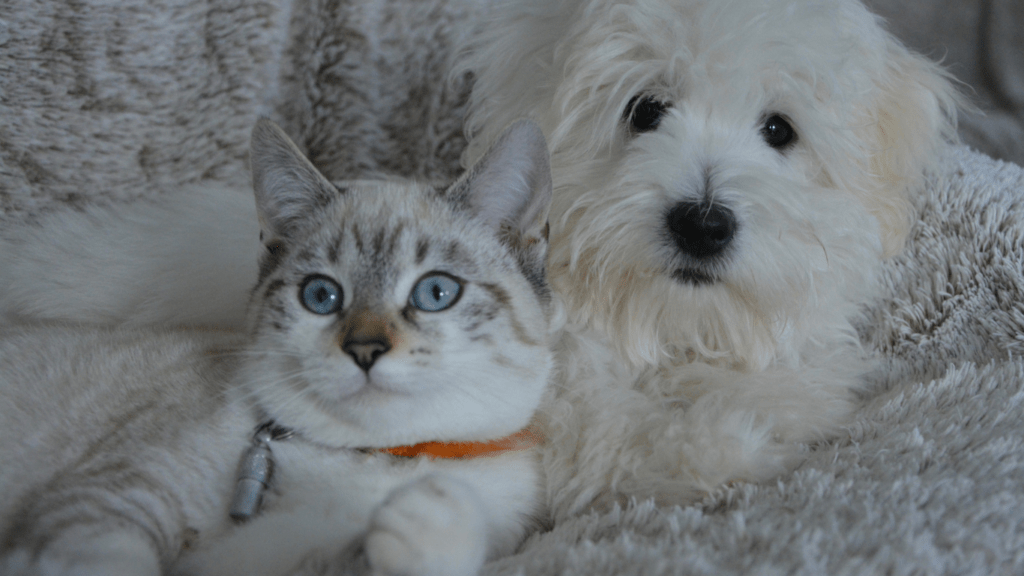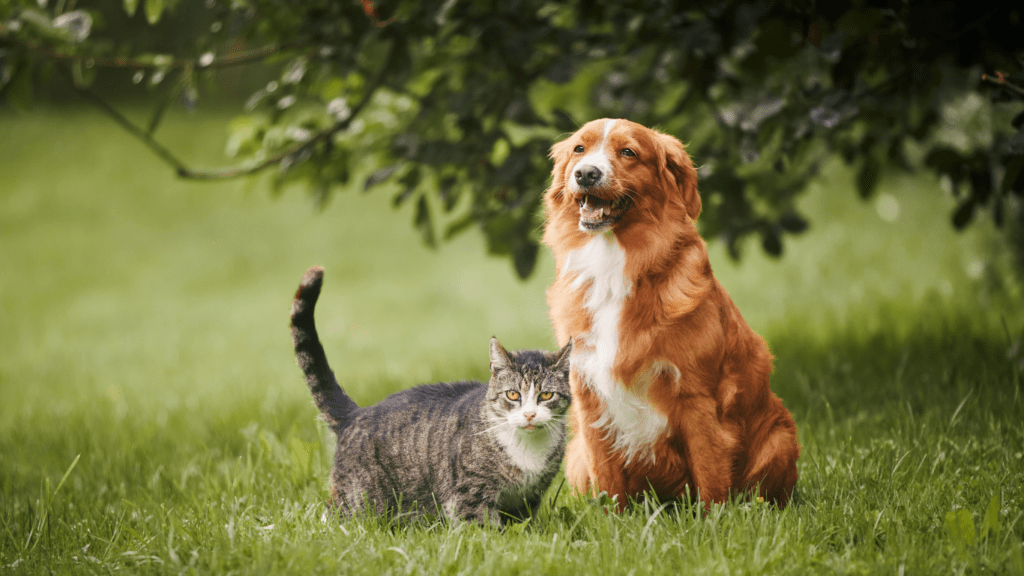Understanding the Nutritional Needs of Senior Pets
Senior pets require adjustments in their diet to maintain optimal health. Aging affects their metabolism, activity levels, and general health, making nutrient needs vary from those of younger pets.
Protein Requirements
Increased protein is often necessary for senior pets to maintain muscle mass. Aging reduces muscle mass; therefore, diets should contain high-quality protein sources. Examples include chicken, turkey, and fish, which support muscle maintenance.
Joint Support
Osteoarthritis and other joint issues are common in aging pets. Diets rich in omega-3 fatty acids can reduce inflammation. Ingredients such as salmon oil and flaxseed are excellent sources of these fatty acids. It’s also beneficial to include glucosamine and chondroitin supplements in their diet.
Digestive Health
Senior pets can experience digestive problems. High-fiber diets can aid in maintaining healthy digestion. Ingredients like pumpkin and sweet potatoes are suitable fiber sources. Prebiotics and probiotics can also enhance gut health and nutrient absorption.
Weight Management
Obesity in senior pets can lead to various health issues. It’s important to manage their caloric intake. Low-calorie, nutrient-dense foods help maintain a healthy weight. Ingredients such as lean meat and vegetables offer essential nutrients without adding extra calories.
Hydration
Hydration becomes crucial as pets age. Senior pets might need more water to prevent dehydration. Wet or canned food can contribute to their water intake. Additionally, always ensure fresh water is available.
Dental Health
Dental issues can impact a senior pet’s ability to eat. Foods formulated for dental health can reduce tartar buildup. Examples include kibble with a special texture and dental chews.
Essential Vitamins and Minerals
A well-rounded diet for senior pets should include essential vitamins and minerals. Vitamin E and C support immune function. Calcium and phosphorus maintain bone health. Ensure balanced nutrition to meet all dietary needs.
By addressing these nutritional needs, you can help senior pets live healthier, more comfortable lives.
Common Health Issues in Aging Pets
Aging pets frequently face various health issues that impact their overall well-being. Awareness of these common problems helps in providing appropriate care.
Arthritis
Arthritis is prevalent in senior pets. Degenerative joint disease causes pain and reduces mobility. Glucosamine and chondroitin supplements, along with omega-3 fatty acids, aid in joint support. Weight management also alleviates stress on the joints.
Dental Problems
Dental problems often afflict senior pets. Plaque buildup leads to gum disease and tooth loss. Regular dental cleanings and specialized dental foods maintain oral health. Chew toys and treats designed to reduce plaque are beneficial.
Obesity
Obesity is a common issue in aging pets. Excess weight strains the heart and joints, exacerbating existing conditions. A high-fiber diet helps control weight. Regular exercise and portion control are key strategies in managing obesity.
Key Nutrients for Senior Pets

Senior pets need specific nutrients to thrive as they age. Focus on these key components for optimal health.
Protein
Protein plays a crucial role in maintaining muscle mass. Senior pets require higher protein intake to prevent muscle atrophy. I recommend lean sources like:
- chicken
- turkey
- fish
These proteins provide essential amino acids which aid in tissue repair and immune function. Ensure the diet includes at least 25-30% protein for dogs and around 30-40% for cats.
Omega-3 Fatty Acids
Omega-3 fatty acids support joint health and reduce inflammation. For senior pets, these fatty acids are vital due to their anti-inflammatory properties, which help manage arthritis. Good sources include fish oil, flaxseed oil, and krill oil. I suggest incorporating these into daily meals for improved mobility and skin health. The optimal dosage is often around 1000 mg per 30 pounds of body weight.
Antioxidants
Antioxidants neutralize free radicals and boost overall health. They’re essential for senior pets to combat cellular damage. Vitamins E and C, along with beta-carotene and selenium, are potent antioxidants. I find blueberries, carrots, and spinach excellent sources. Including these in your pet’s diet helps protect against age-related diseases and enhances immune response.
Choosing the Right Senior Pet Food
Selecting the best food for senior pets involves understanding commercial options and homemade diets. Each option has distinct benefits and challenges.
Commercial Senior Pet Foods
Commercial senior pet foods cater to the unique dietary needs of aging pets. These foods often include higher protein content to maintain muscle mass. Well-known brands like Hill’s Science Diet and Royal Canin formulate these foods specifically for senior pets. They add ingredients like omega-3 fatty acids for joint support and antioxidants to combat cellular damage. It’s essential to review the ingredient list to avoid fillers and ensure high-quality nutrients. Consulting a veterinarian can help choose a brand that suits individual pets’ needs based on their health conditions.
Homemade Diets
Homemade diets require careful planning to ensure nutritional balance. These diets can provide fresher ingredients and tailored nutrition for senior pets. Including lean protein sources like chicken and fish helps maintain muscle mass. Adding omega-3 rich oils like fish oil supports joint health, and incorporating antioxidant-rich vegetables like carrots and spinach boosts overall health. However, it’s crucial to consult with a veterinarian or a pet nutritionist to create a balanced diet plan. Supplements may also need to be added to meet specific nutritional requirements.
Hydration and Senior Pets
- Hydration is crucial for senior pets. As pets age, their body’s ability to conserve water diminishes. Reduced kidney function and a less effective thirst mechanism make dehydration a common issue. Ensuring consistent water intake helps maintain organ function and prevents urinary tract infections.
- Monitor water consumption daily. Signs of inadequate hydration include dry gums, lethargy, and loss of skin elasticity. Easy access to fresh water encourages drinking throughout the day. Place multiple water bowls in areas frequented by your pet to boost availability.
- Consider incorporating wet food into the diet. Wet food has higher moisture content compared to dry kibble. This can help supplement hydration, especially if your pet drinks less on its own. Mixing wet and dry food can also enhance palatability, catering to older pets with diminishing appetites.
- Electrolyte solutions might be beneficial. If your pet is at risk of dehydration due to illness or aging, consulting with your vet about electrolyte solutions is recommended. These can help maintain proper hydration and balance in the body.
- Keep water quality in mind. Offer filtered or purified water to remove potential contaminants that could affect kidney health. Regularly clean water bowls to prevent bacterial buildup, ensuring the water remains safe and appealing.
- Maintain optimal hydration for better health. Adequate hydration improves digestion, circulation, and joint lubrication. By prioritizing your senior pet’s hydration, you’re enhancing their overall wellbeing and longevity.
Consulting a Veterinarian
Discussing your pet’s diet with a veterinarian ensures their nutritional needs are met. A vet can evaluate your senior pet’s health and recommend specific dietary changes. Vets often suggest supplements to address deficiencies found during exams.
Regular check-ups help monitor weight, dental health, and hydration levels, all crucial for aging pets. Veterinarians assess underlying conditions that might require dietary adjustments. For instance, they may recommend low-phosphorus food for kidney issues or high-fiber food for digestive health.
Veterinarians can also identify early signs of common age-related issues, providing timely interventions. This proactive approach extends your pet’s quality of life. Don’t alter your pet’s diet without professional advice, as abrupt changes might cause gastrointestinal distress or exacerbate existing conditions.
A vet’s guidance makes navigating senior pet nutrition more manageable and effective. Regular consultations create a balanced diet plan tailored to your pet’s unique health needs, ensuring they age comfortably and healthfully.



 Pet Travel & Safety Consultant
Jimmy Dixoneser is the go-to expert on pet travel and safety at Pet Paw Shack. He provides valuable guidance on how to ensure pets are safe, comfortable, and stress-free when traveling. From creating checklists for pet-friendly vacations to advising on the best travel gear, Jimmy’s expertise helps pet owners confidently navigate adventures with their pets, whether on the road or in the air.
Pet Travel & Safety Consultant
Jimmy Dixoneser is the go-to expert on pet travel and safety at Pet Paw Shack. He provides valuable guidance on how to ensure pets are safe, comfortable, and stress-free when traveling. From creating checklists for pet-friendly vacations to advising on the best travel gear, Jimmy’s expertise helps pet owners confidently navigate adventures with their pets, whether on the road or in the air.
